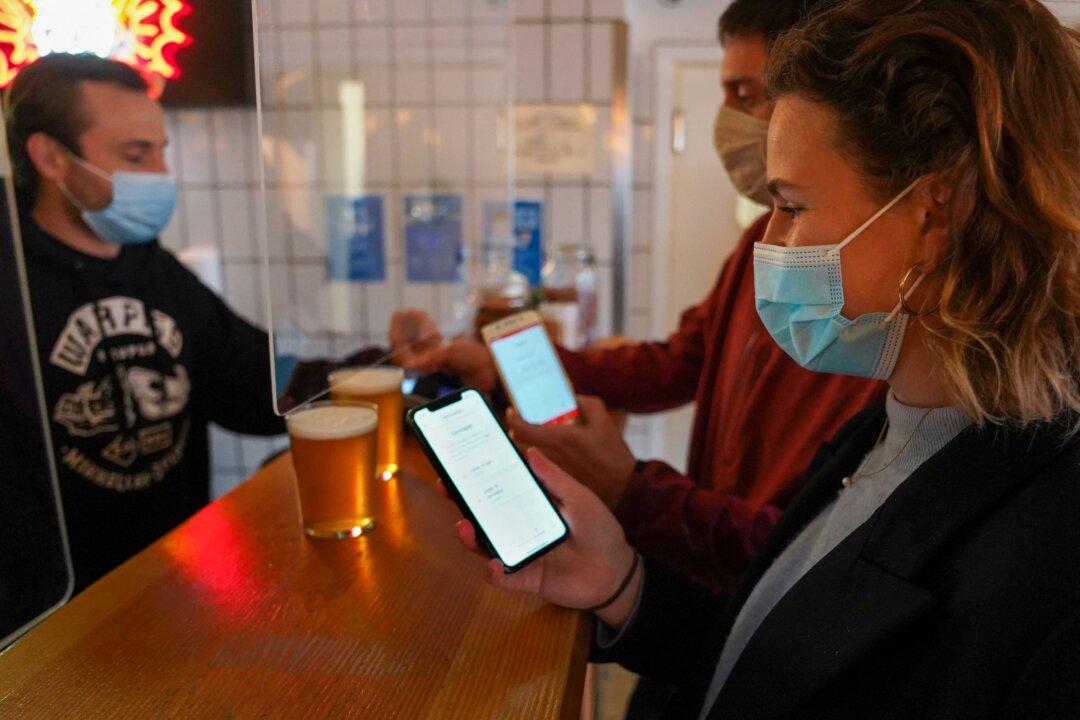A subvariant of the Omicron coronavirus variant is more infectious than the original version, according to researchers in Denmark.
People are more likely to get infected with BA.2, the Omicron subvariant, regardless of whether they’ve received a COVID-19 vaccine, even with a booster dose, researchers with the University of Copenhagen, the Technical University of Denmark, and Statens Serum Institut stated.





